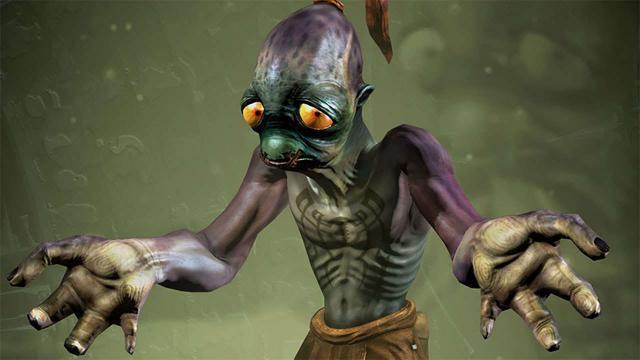Lorne Lanning, founder and head of Oddworld Inhabitants, recently made the claim that capitalism is killing games. The drive to make the next blockbuster game makes big money for the publishers, he says, but very little for the developers, and capitalism is to blame for this.
Is this really and truly the case, though? Are games suffering because of the “need” for big budgets and AAA publishers? And does the suffering begin and end with the developers, or do gamers feel it as well?
A Picture (or a Game) is Worth…Millions
Lanning does have a point when he talks about the need to please investors – just keeping your studio in the black is never enough if you have a publicly-traded company. The video game industry is a multi-billion dollar business, according to the ESRB website – a 10.5 billion dollar business in 2009, a number that has most certainly grown astronomically since then.
 Games are big business – very big.
Games are big business – very big.
With each big release having the potential to make millions, and with games making publishers and their investors wealthy (while the developers barely break even), it’s easy to see where Lanning might be coming from. Still, all hope is not lost; as he points out, a developer can avoid this fate and perhaps build a sustainable business by avoiding major publishers and eschewing an IPO and investors. He applauds digital publishing as making this a viable model for indie developers, who would have otherwise struggled to make it work if they had to rely on physical product on actual shelves.
But what about the gamer? Where the gamer is concerned, it’s not just about money – it’s about the quality of the experience.
A Picture (or a Game) is Also Beautiful
There’s no denying the appeal of many blockbuster titles flying off the shelves these days – a lot of money goes into making them the triumphs that they become. They are visually stunning, have phenomenal soundtracks, and many even have fantastic stories created by talented writers.
Many more, however, are just clones of older games, living off the popularity of their predecessors and a dash of new window dressing.
 Some indie games have the look and feel of playing a masterpiece.
Some indie games have the look and feel of playing a masterpiece.
Developers at these large, public companies can hardly be faulted for this – they’re under pressure to deliver a product that will sell, and when they’ve seen something work once, twice, three times – well, it stands to reason that it might just keep working a few times more.
Still, while gamers can and do buy these titles, they miss out on the uniqueness of an original – they don’t get the work of art that a game can be, when it’s not trying to be something else.
That’s where indie games come in. Without the pressure of investors, indie developers can and frequently have delivered games that were incredible works of art and storytelling, and that’s not a trend that’s showing any signs of slacking. The success of games like Octodad, The Binding of Isaac, and more recently, Ori and the Blind Forest have shown that indie games can really shine, given the chance.
To get that chance, they need money. Not a lot in the grand scheme of things, but the numbers can be daunting when an indie company is just starting out.
So how do they get the money without traditional investors?
 Sometimes, you need a different kind of investor to get your game off the ground – and gamers will open their hearts (and their wallets) for a developing game that inspires their interest. That’s how indie project
Sometimes, you need a different kind of investor to get your game off the ground – and gamers will open their hearts (and their wallets) for a developing game that inspires their interest. That’s how indie project
Orphan found its home.
Kickstarted Creativity and Steam-Powered Ingenuity
If you’ve spent even just a handful of days on the internet, chances are, you know what Kickstarter is. You may have even heard of similar sites like Indiegogo, Fundable, or the United Kingdom’s Crowdfunder. If an indie developer has something amazing to share with the world, they can find kindred spirits and open wallets by the thousands in these places.
The phenomenon that is crowdfunding has even led to nonprofits that want to encourage indie game development – particularly among women and minorities.
Further, tools like those provided by Steam Workshop help those new to game development get their feet wet by giving them what they need to create content for existing games, while Steam Greenlight, for all its flaws, helps indie developers get their titles in front of the people who matter most to them – the players.
Games Aren’t Dead – They’re Just Changing
AAA games aren’t going away, no matter how popular the most creative of indie titles may be. But the growth of indie can serve as a model for what those big-time publishers and developers need to change. That can mean more fantastic, artistic games and fewer dressed-up clones on the market, and that’s something we can all benefit from.







Published: Apr 4, 2015 09:01 pm